 This is a nice pocket-sized guide to consciousness. Actually it’s a guide to the problem of consciousness, since there is no consensus on what consciousness is or even exactly what the word means. Blackmore is even-handed regarding the various competing viewpoints, though it may all be slightly coloured by her own views, which are heavily influenced by Buddhism. And if you think that’s an incongruous stance for a hardcore psychologist/philosopher to take, then you really should read this book.
This is a nice pocket-sized guide to consciousness. Actually it’s a guide to the problem of consciousness, since there is no consensus on what consciousness is or even exactly what the word means. Blackmore is even-handed regarding the various competing viewpoints, though it may all be slightly coloured by her own views, which are heavily influenced by Buddhism. And if you think that’s an incongruous stance for a hardcore psychologist/philosopher to take, then you really should read this book.
Review articles
Consciousness: A Very Short Introduction — Susan Blackmore
Demian — Hermann Hesse
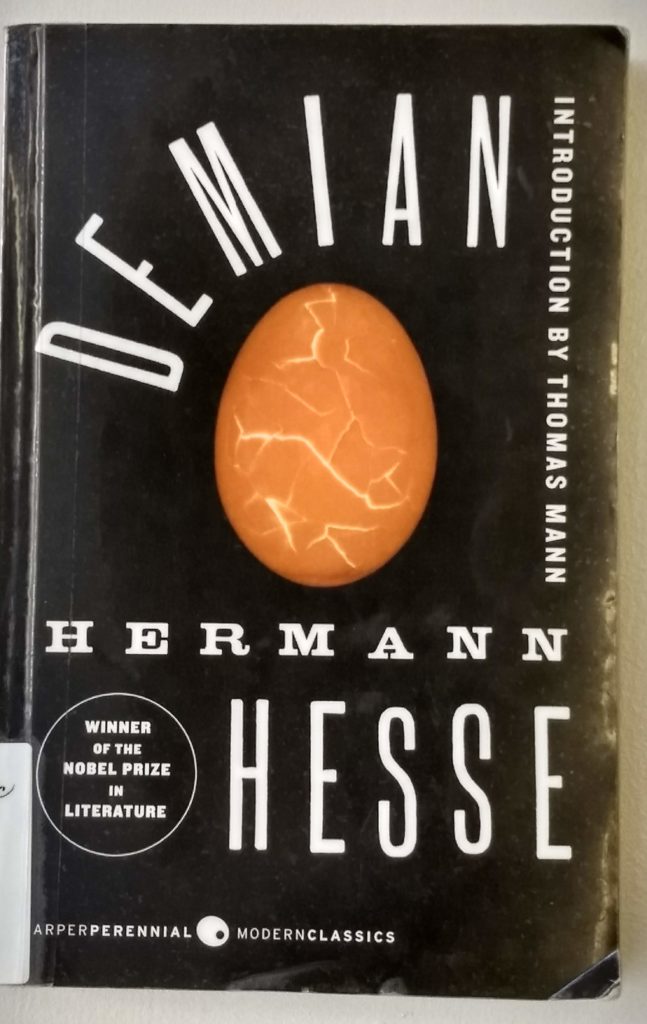 Demian is very mysterious and alluring. This book is about him and his influence on the narrator — they first meet when they are both schoolboys. Demian then turns up repeatedly as the years go by, gradually taking the narrator into a circle of freethinking misfits. It’s less fanciful than the other Hesse novels I have read, but still packs a bit of a punch.
Demian is very mysterious and alluring. This book is about him and his influence on the narrator — they first meet when they are both schoolboys. Demian then turns up repeatedly as the years go by, gradually taking the narrator into a circle of freethinking misfits. It’s less fanciful than the other Hesse novels I have read, but still packs a bit of a punch.
Blink — Malcolm Gladwell
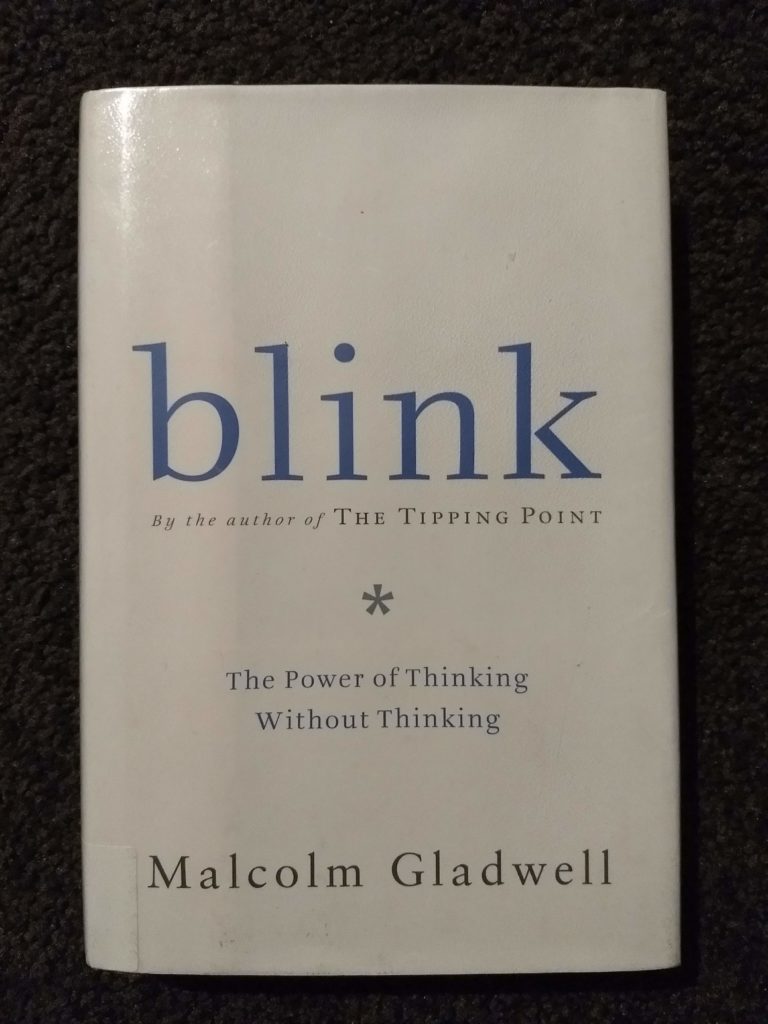 Snap judgements are surprisingly accurate. Even the ones we make without knowing how. Even the ones we make when we don’t even know we are doing it: “I just had a bad feeling about him, I can’t explain it”. This book gives evidence and explanations for this. It’s interesting in itself, but the trouble is it has been a very influential book — since it was published, its examples have been cited and reused so many times in so many places that what must once have been groundbreaking now seems overly familiar. I had similar thoughts the last time I saw a performance of Hamlet: the dialogue just seemed to be one cliche after another. Of course, they weren’t cliches when Shakespeare wrote the play!
Snap judgements are surprisingly accurate. Even the ones we make without knowing how. Even the ones we make when we don’t even know we are doing it: “I just had a bad feeling about him, I can’t explain it”. This book gives evidence and explanations for this. It’s interesting in itself, but the trouble is it has been a very influential book — since it was published, its examples have been cited and reused so many times in so many places that what must once have been groundbreaking now seems overly familiar. I had similar thoughts the last time I saw a performance of Hamlet: the dialogue just seemed to be one cliche after another. Of course, they weren’t cliches when Shakespeare wrote the play!
Even so, the sections towards the end about microexpressions were very interesting and new, at least to me. They give some insight into where the “bad feelings” about people might come from, and maybe some pointers into how you could train yourself to read people and situations better. So even now this is still a worthwhile read from a very influential writer.
Zeustian Logic — Sabrina Malcolm
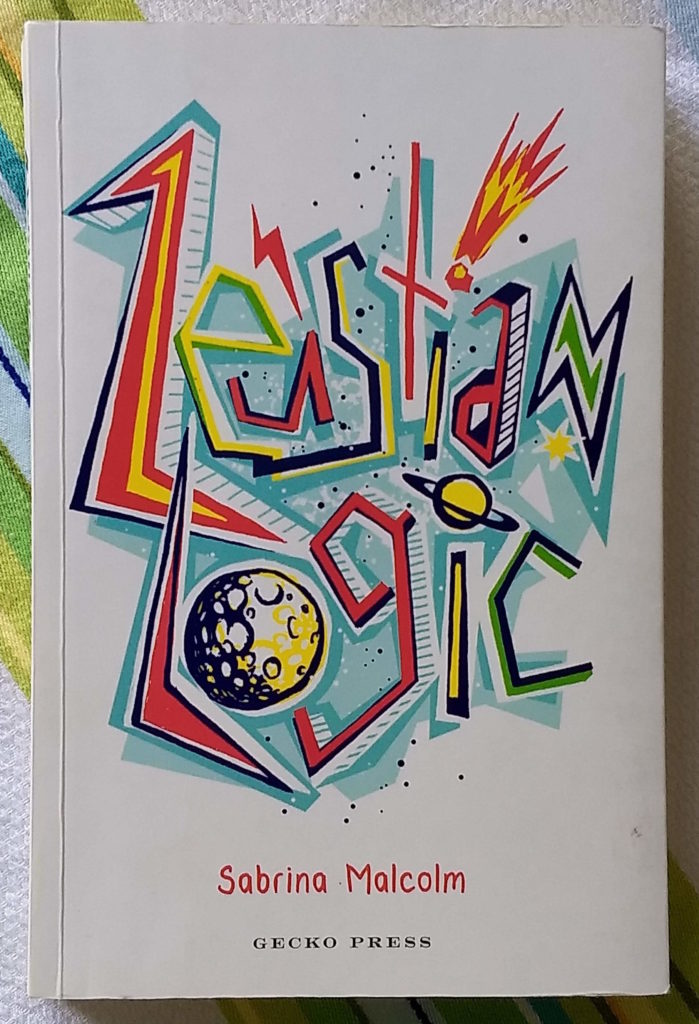 This story is more fun than you would think, given that it is about a teenage boy coming to terms with his father’s death. Astronomy and mythology are two of Tuttle’s boyish hobbies; they run like threads through the stories he tells his younger brother and the conversations he has with his friend, and also play a big part in the novel’s resolution. His father, a famous mountaineer, disappeared in controversial circumstances which made his loss even harder for his family to deal with. The repercussions continue even a year later, when the novel is set.
This story is more fun than you would think, given that it is about a teenage boy coming to terms with his father’s death. Astronomy and mythology are two of Tuttle’s boyish hobbies; they run like threads through the stories he tells his younger brother and the conversations he has with his friend, and also play a big part in the novel’s resolution. His father, a famous mountaineer, disappeared in controversial circumstances which made his loss even harder for his family to deal with. The repercussions continue even a year later, when the novel is set.
Apart from dealing with his father’s death, he also has to deal with his mother and brother, who are struggling in their own way to manage. And of course he also has to negotiate the usual teenage issues; mostly school, and also the juvenile delinquent petrolhead who lives next door (along with his cute half-sister — it’s not all bad).
Twenty Thousand Leagues Under the Sea — Jules Verne
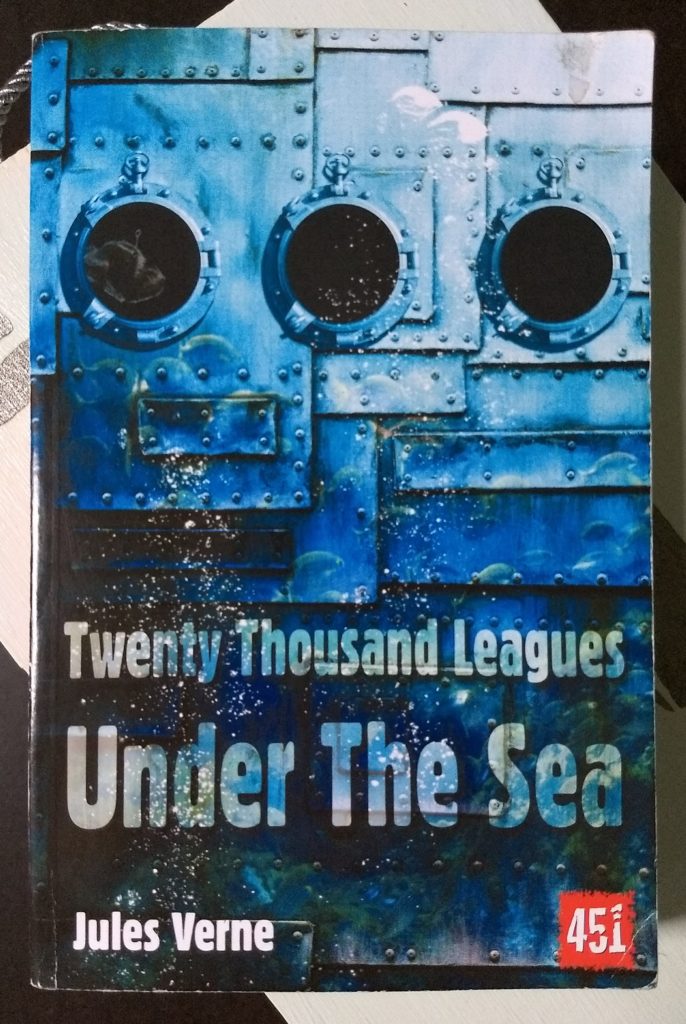 It’s good to finally read this famous book, starring the famous Captain Nemo and his famous ship the Nautilus, and discover that its fame is well-deserved: it’s a page-turning adventure story with drama, intrigue and nifty gadgets.
It’s good to finally read this famous book, starring the famous Captain Nemo and his famous ship the Nautilus, and discover that its fame is well-deserved: it’s a page-turning adventure story with drama, intrigue and nifty gadgets.
The narrator, a maritime expert, joins an expedition and eventually ends up aboard the Nautilus with couple of his companions. In a series of episodes we find out about the ship, a little about the captain, and a lot about various going-on under the sea. Verne puts a lot of really interesting and generally plausible ideas into the story, which is impressive for a speculative fiction written nearly 150 years ago. I have always wondered about the title though: I always thought that it referred to a depth of 20,000 leagues, but then I discovered that 20,000 leagues is about 100,000km, ten times deeper than any ocean. I now realise that it’s simply the distance travelled while under the sea — they circumnavigate the globe underwater, following a very meandering path.
The story was originally published in serial form, and it shows in the episodic structure. This makes it good to read bit by bit rather than all at once — very convenient for my morning and evening commute. This was recommended to me by Jay — I picked it because it stood out from most of his recommendations, which tend to be modern YA fiction. He’s also read other Verne stories: apparently Journey to the Centre of the Earth is good too.
The New Torchlight List — Jim Flynn
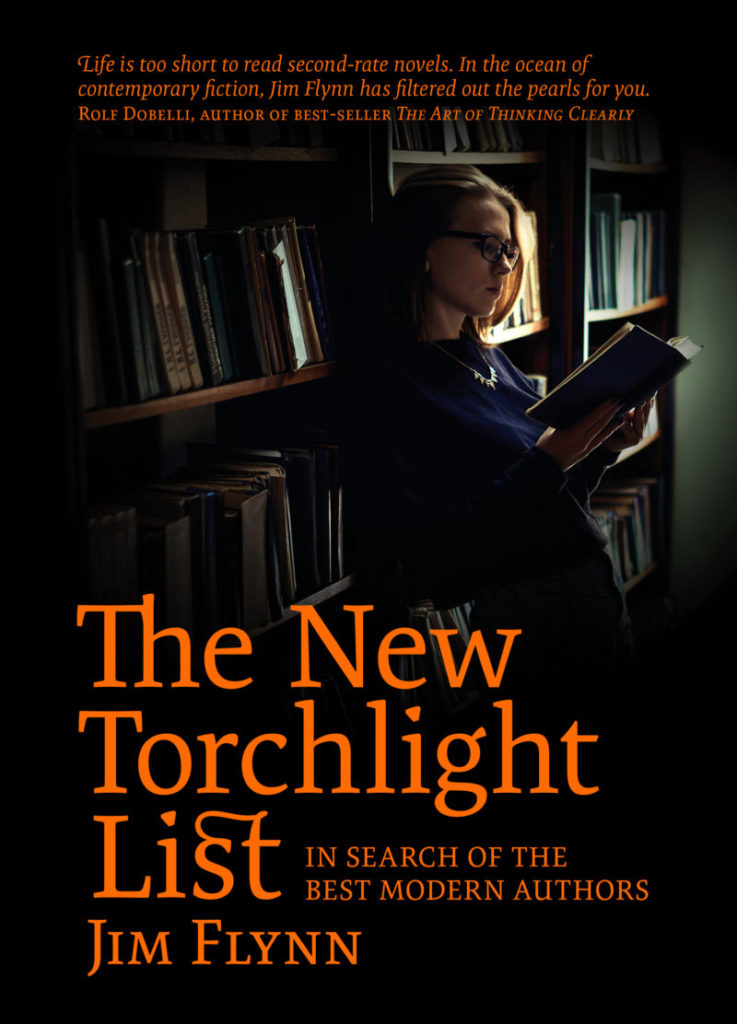 Jim Flynn’s first Torchlight List book was a really interesting guide to one man’s essential reading list. This follow-up takes a different tack but is just as engrossing. Here Flynn takes a more global view, focusing on different parts of the world and calling out books and writers that he thinks are worth reading.
Jim Flynn’s first Torchlight List book was a really interesting guide to one man’s essential reading list. This follow-up takes a different tack but is just as engrossing. Here Flynn takes a more global view, focusing on different parts of the world and calling out books and writers that he thinks are worth reading.
Flynn talks about the books and writers in the context of the countries and regions they come from. He gives excellent overviews of the various regions including their history and politics, which helps to explain the genesis of the different writers. I learned a lot just from these sections — they could almost be a book on their own.
12 Rules for Life — Jordan Peterson
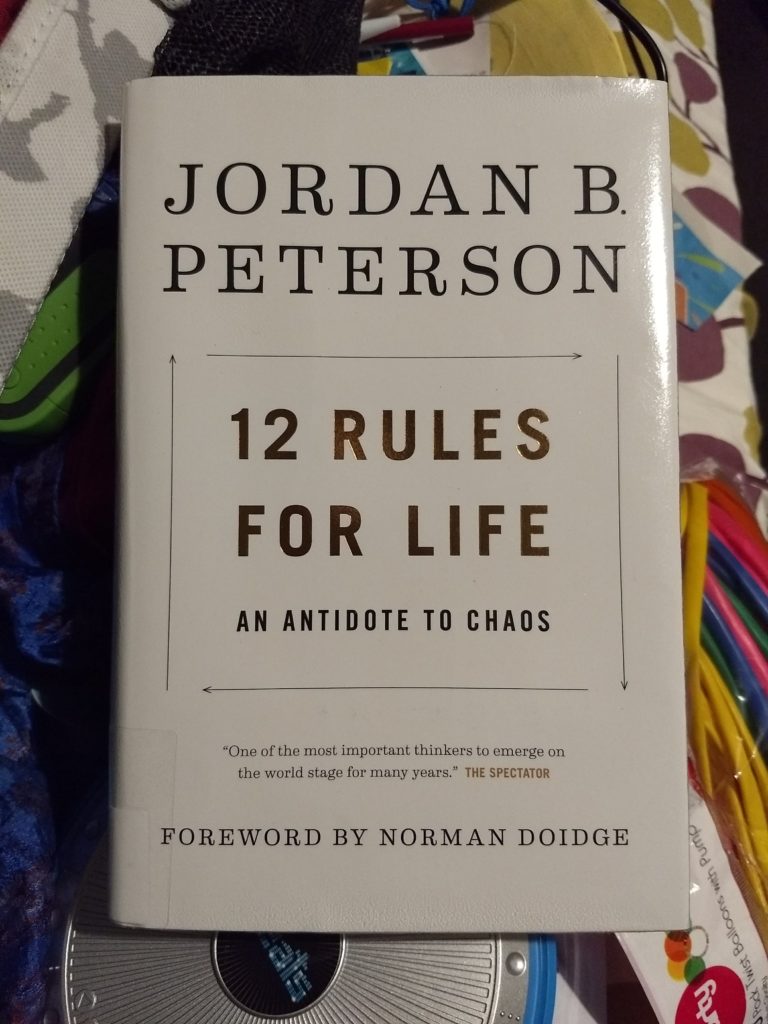 This is fun to read and it may change your life. The subtitle describes it best: chaos (particularly perhaps the chaos of the modern world) is what Peterson dreads, and he offers prescriptions, strategies and even commandments for how to preserve an ordered and civilised life from the relentlessly pounding waves of entropy. And all presented using language that virtually demands to be read out loud.
This is fun to read and it may change your life. The subtitle describes it best: chaos (particularly perhaps the chaos of the modern world) is what Peterson dreads, and he offers prescriptions, strategies and even commandments for how to preserve an ordered and civilised life from the relentlessly pounding waves of entropy. And all presented using language that virtually demands to be read out loud.
Each of the 12 homely “rules” is really just the starting point for a wide discussion of how life should best be lived. Peterson is a psychologist and a Christian, and those are the lenses through which he views the world. There is a lot about biblical history and teachings — a lot of it is presented as metaphor so it is still somewhat relevant to non-Christian and even non-religious people. But still, there is a lot more bible-bashing than I was expecting, even from such a famously conservative figure. Each of the 12 chapters ends with a restatement of the rule as its last sentence. For some reason I find this irritating and twee. And I normally like tweeness.
Owls Do Cry — Janet Frame
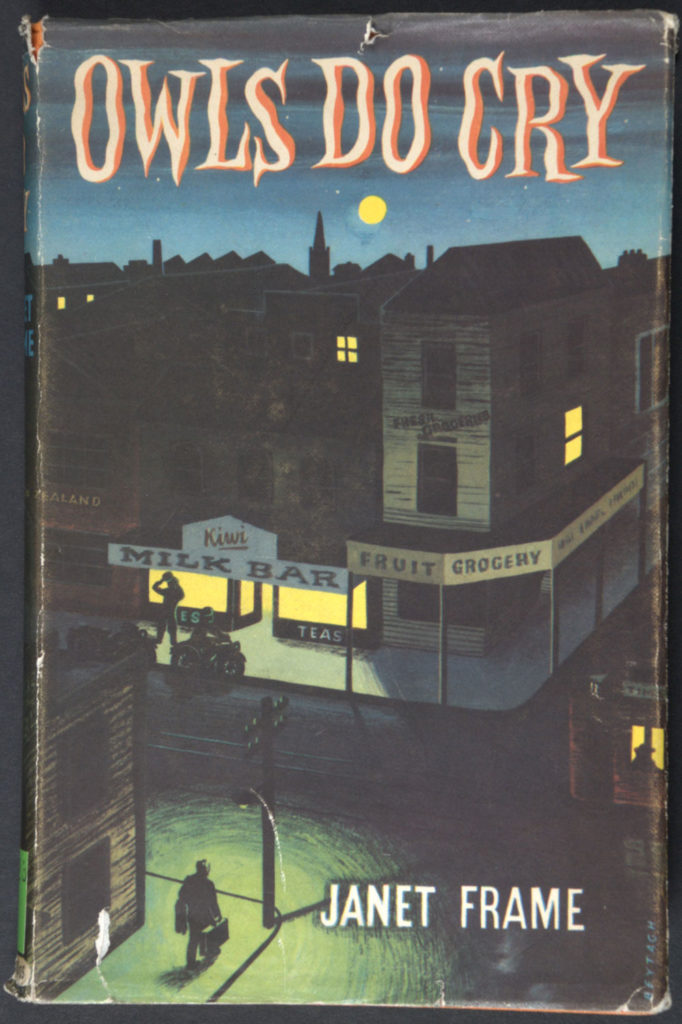 This is deservedly one of the classic New Zealand novels. When I returned it to the library, the librarian eagerly asked me how it was. I said it was really good — a novel version of Frame’s short stories. The shifting viewpoints give a broad understanding of the characters and events, and the impressionistic first-person narrative really made me feel what it must be like for the main character, living a life very different to mine. Bad things happen to her, but there are also many marvellous moments of beauty:
This is deservedly one of the classic New Zealand novels. When I returned it to the library, the librarian eagerly asked me how it was. I said it was really good — a novel version of Frame’s short stories. The shifting viewpoints give a broad understanding of the characters and events, and the impressionistic first-person narrative really made me feel what it must be like for the main character, living a life very different to mine. Bad things happen to her, but there are also many marvellous moments of beauty:
Continue reading
End as a Man — Calder Willingham
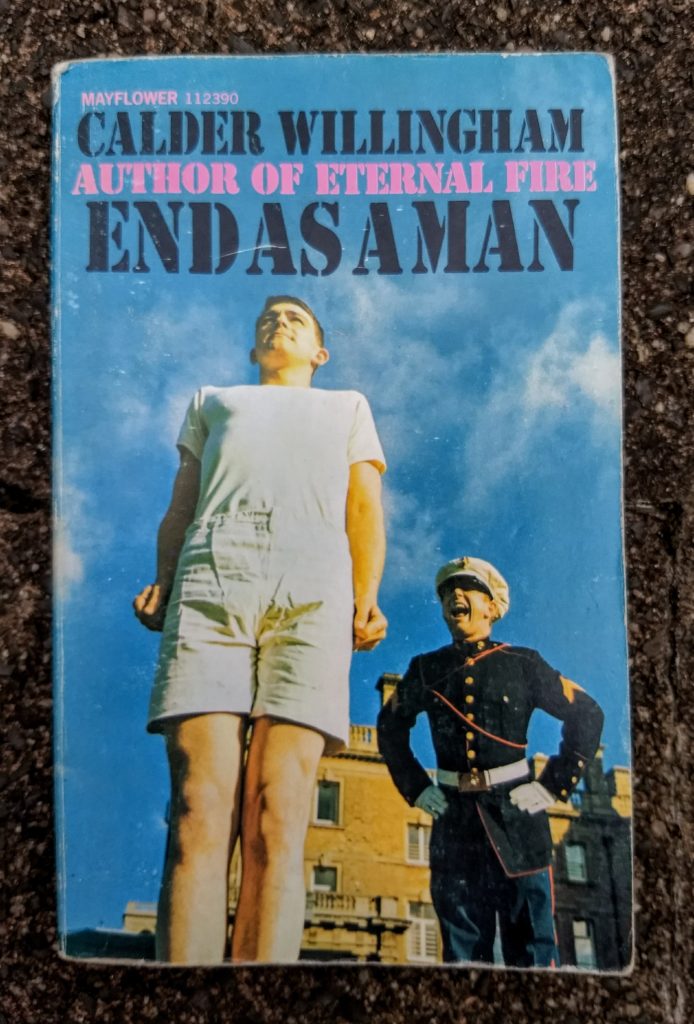 Jim Flynn put this book in his top 5 novels list, so I grabbed it when I found a copy recently. He said it was the greatest novel portraying contemporary American college life. “Contemporary” in this case means circa 1950, and it is actually set in a military college, so it’s presumably a bit different from a civilian college like Harvard or whatever. It does seem a bit bizarre, with the ubiquitous corporal punishment and merciless bullying of first-years by older students who are still just out of their teens. I don’t know whether this weirdness is due to being 60 years ago, being American, being a military school, or being a work of fiction. I suppose it’s all four, but I do get the impression that the general features of the books’s college life are based on fact. Holy cow, what a hell-hole it must have been.
Jim Flynn put this book in his top 5 novels list, so I grabbed it when I found a copy recently. He said it was the greatest novel portraying contemporary American college life. “Contemporary” in this case means circa 1950, and it is actually set in a military college, so it’s presumably a bit different from a civilian college like Harvard or whatever. It does seem a bit bizarre, with the ubiquitous corporal punishment and merciless bullying of first-years by older students who are still just out of their teens. I don’t know whether this weirdness is due to being 60 years ago, being American, being a military school, or being a work of fiction. I suppose it’s all four, but I do get the impression that the general features of the books’s college life are based on fact. Holy cow, what a hell-hole it must have been.
So the characters end up in various unedifying situations, usually of their own making, and we see them as they deal with things, usually badly. It becomes apparent that the novel mostly concerns the misfits and bad hats of the academy, which explains a lot about the dramas that befall them. The book ends with a couple of eloquent and very different speeches, and closes with just deserts all round.
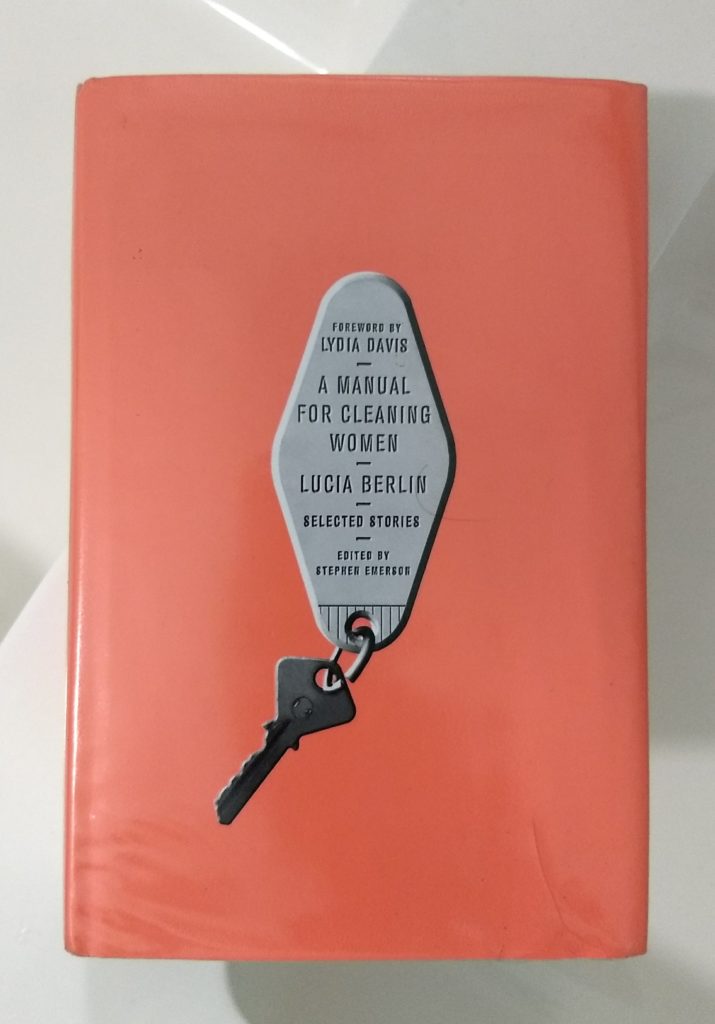 Squalor and alcoholism feature prominently in these short stories based on Berlin’s life. Many of the stories concern marginalised people: they suffer so much injustice but still manage to keep going. Even so, I wouldn’t describe the stories as uplifting.
Squalor and alcoholism feature prominently in these short stories based on Berlin’s life. Many of the stories concern marginalised people: they suffer so much injustice but still manage to keep going. Even so, I wouldn’t describe the stories as uplifting.